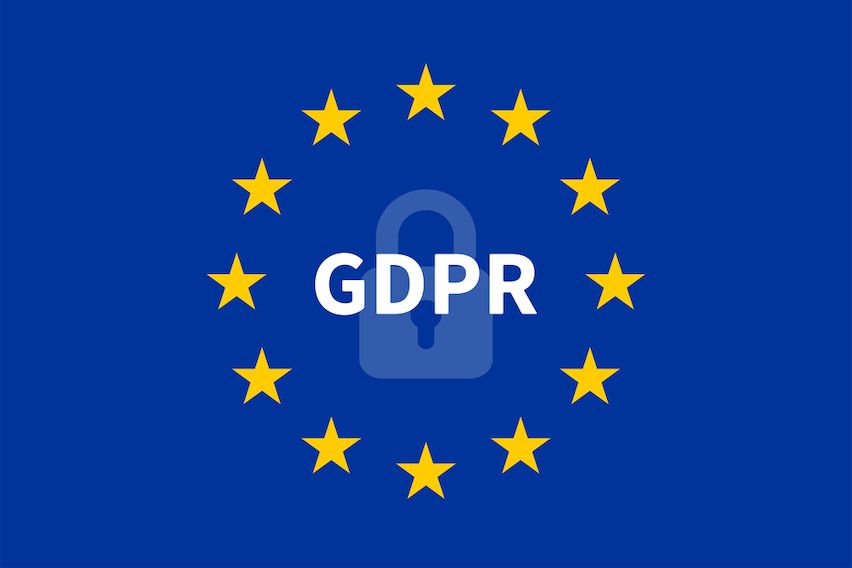Contents
the email tool that makes email marketing simple
Email Marketing Compliance - Understanding Email Marketing Laws
Published: December 23, 2024
Feeling lost in the maze of email marketing laws? You're not alone. With rules like GDPR and the CASL, it's easy to get overwhelmed. But don't worry, our guide cuts through the confusion and will show you how to make your emails follow the rules without any fuss. Let's dive in and make sure your email marketing efforts are on track.
An Overview to Compliance
What is compliance?
Email marketing compliance involves following a set of laws and regulations designed to protect consumers from spam and other unsolicited emails. These regulations, which vary from country to country, set standards for what is acceptable when sending marketing emails. They often cover aspects like getting consent to send emails, providing clear opt-out options, and ensuring transparency. Compliance is not just a legal obligation; it's a crucial part of a professional digital marketing strategy that respects subscriber preferences and promotes ethical marketing practices.
Why compliance matters
When it comes to professional email marketing, compliance is king for several key reasons:
-
Avoiding heavy legal penalties that can arise from non-compliance. Fines for violating email regulations can be steep, ranging up to millions of dollars depending on the regulation and level of non-compliance. Having proper compliance helps reduce these legal risks.
-
Maintaining high email deliverability and open rates. Following email best practices like providing subscriber choice helps build trust and reduces complaints of emails going to the spam folder. This keeps your sender reputation strong ensuring emails continue reaching inboxes.
-
Building long-term relationships and brand reputation with subscribers. By respecting subscriber privacy and choice in how they receive emails, you demonstrate to your audience that you value them over quick sales. This can help build trust and loyal brand advocates.
-
Juggling email laws across multiple regions can be confusing. Having one master list of subscribers who signed up to receive emails makes it easier. This way you know everyone said it's OK to send them marketing emails, no matter where they live. That makes following all the different laws simpler.
Types of emails marketers can send
Different types of business emails, such as promotional, transactional, and informational emails, have different compliance requirements. It’s important to understand these to ensure your marketing activities comply with relevant laws.
Promotional Emails
These try to sell something or get the reader to do something like sign up or come to an event. Since the goal is to market to the reader, there are more rules around getting consent and letting them opt out. But done right, promotional emails are extremely effective for growing your business.
Transactional Emails
Transactional emails handle order confirmations, shipping notices, receipts, password resets, and similar logistics. They provide a service related to a purchase or account. You can send these without getting opt-in consent since they’re essential communications, not sales material.
Informational Emails
These share news, tips, or resources without directly promoting products. As long as you’re not talking up your paid offerings too heavily, informational content sent to current contacts is usually compliant. Useful, relevant info nurtures relationships.
What are the main email marketing laws?
Understanding the key email laws and regulations will help you craft compliant marketing messages. The laws ensure that email marketing practices respect privacy, consent, and consumer rights. From GDPR in Europe to the CAN-SPAM Act in the U.S., each piece of legislation helps shape how businesses use email for marketing purposes.
GDPR: The European Standard
The General Data Protection Regulation (GDPR) is a landmark EU regulation that set a new standard for data privacy and protection worldwide. It applies not only to organizations within the EU but also to those outside the EU that handle EU residents' data.
GDPR emphasizes the importance of consent and transparency in data handling, making it mandatory for businesses to get explicit permission from individuals to consent to send them marketing. It also gives individuals the right to access their data and request its deletion. Non-compliance with GDPR can lead to severe penalties, so it's important for businesses to follow these regulations when sending email messages.
CAN-SPAM Act: The U.S. Email Legislation
In the United States, the CAN-SPAM Act is enforced by the Federal Trade Commission (FTC). The act sets rules for commercial messages, which it defines as any email mainly meant for advertising or promoting a product or service.
Under the act, businesses have to provide clear and truthful information in their emails, including clear subject lines, a valid physical address, the sender's identity, and an easy way to opt out of receiving future emails. If businesses fail to follow these rules, the FTC has the authority to impose penalties on it.
CCPA: Protecting California Consumers
The California Consumer Privacy Act (CCPA) represents a significant step in consumer privacy rights in the United States. The CCPA provides California residents with certain rights over their personal information, including the right to know, delete, and opt out of the sale or sharing of their data. For businesses, this means greater responsibility in managing consumer data, especially in their marketing practices. In November 2020, the California Privacy Rights Act (CPRA), which amended the CCPA and added new privacy protections signifies a growing emphasis in the USA about privacy in the digital space.
CASL: Canada’s Legislation Against Unsolicited Email
Canada's Anti-Spam Legislation (CASL) is one of the strictest anti-spam laws globally. Legal requirements mean that businesses have to obtain explicit consent from recipients before sending commercial electronic messages (CEMs), including emails. CASL's requirements go beyond consent; it also mandates that every email should have a clear way to unsubscribe and imposes strict penalties for non-compliance.
Spam Act 2003: Email Marketing Laws in Australia
In Australia, the Spam Act 2003 is the main law for email marketing. Like GDPR and the CAN-SPAM Act, it requires consent for sending unsolicited commercial messages, including emails. When targeting Australian audiences it's essential to make sure that every email you send is to recipients who have explicitly opted in to receive your messages. The consent can be direct, where the recipient clearly agrees, or implied, based on their relationship with your business.
The Spam Act includes regulations for clear sender identification in every marketing email, promoting transparency and accountability. This helps in building trust with your recipients and the integrity of your email campaigns. Every commercial email must also include the ability to easily unsubscribe. In 2021, The Spam Regulations an amendment to the Spam Act came into effect and added additional standards to the privacy laws.
What is the penalty for violating email marketing laws?
The penalties for violating email marketing laws can be severe. Fines, lawsuits, damaged reputation and lower email deliverability are all possible consequences. Understanding the potential penalties can help email marketers take compliance seriously.
Fines and Lawsuits
Depending on the regulation and level of violation, fines can range from the thousands to millions per email. For example, violating GDPR rules can carry fines as much as €20 million (about $22.6 million) or 4% of annual global turnover, whichever is greater. While breaking the CAN-SPAM Act can attract fines of up to $43,280 for each non-compliant message. Class action lawsuits from subscribers are also a risk. So, the legal consequences get costly quickly when sending email marketing campaigns.
Reputational Damage
Getting labeled as a spammer damages your sender reputation and email deliverability. When subscribers report emails as spam due to issues like misleading content or lack of opt-out, it hurts your sender score. This causes email providers like Gmail and Outlook to block more emails, and no compliance eventually means no inbox access.
Lower Email Deliverability
Violating privacy regulations damages subscriber trust in a brand. Recipients are less likely to open non-compliant emails, lowering open and click-through rates which impacts return on investment (ROI). Gmail and other email service providers may even automatically send these types of messages to spam or promote them less. This limits email reach and marketing effectiveness.
How do I make my emails compliant?
Crafting compliant emails protects your business while building subscriber trust. Follow these best practices for effective, ethical email marketing to make sure you comply with regulations.
Know the rules
Get familiar with major regulations. Understand consent, opt-out requirements, sender identity rules and more based on where your subscribers are located. Tools like email validators can scan for issues. Knowledge of laws is power when sending marketing emails.
Use double opt-in
Don’t add contacts without direct consent. Use double opt-in (users confirming sign up via email or checkbox) when possible to verify willingness. This documentation protects you while ensuring recipients clearly agree to receive marketing emails in the future.
Easy unsubscribe
Each email must include a clear one-click unsubscribe option. Make opting out simple via links or buttons. Automatic removal upon unsubscribing is also essential. This gives subscribers control over their inboxes per anti-spam laws.
Be clear who you are
Regulations universally require sender identity transparency. Your “From” name, business name and physical address should feature prominently within emails. This builds recipient awareness and trust in your brand when sending commercial email marketing.
Honest content
Misleading or dishonest messaging violates regulations like CAN-SPAM. Create email content recipients recognize as valuable and non-deceptive. False claims just to get clicks lead to spam complaints and destroy trust. Think long-term - integrity over quick conversions.
Protect private information
Never share or sell your email list or other data without direct consent according to privacy laws like GDPR and CCPA. Handle email addresses and personal details securely. Cybersecurity is equally crucial to minimize breach risks. Valuing subscriber privacy earns goodwill.
Regularly clean your list
Review your email list and remove invalid addresses, opt-outs, spam complaints etc. Automate the process where possible. This list hygiene ensures you only email compliant subscribed contacts interested in your content. Accurate segmentation by user preferences takes this further.
Record consent
Document subscriber consent at signup with checkboxes, forms etc per legal needs. Tracking consent by user gives proof of compliance if needed. Consent logs also help segment engaged subscribers from unsubscribers for list cleaning.
Ask for help if you need it
Email marketing compliance doesn’t have to be confusing. If you need help understanding regulations in your locales or implementing the above tips, don’t hesitate to bring in experts. Many email service providers offer compliance assistance as well. Staying compliant is staying in business.
Summary
Staying on top of data protection laws is crucial, but it doesn’t have to be overwhelming. By understanding major regulations like GDPR and CAN-SPAM that emphasize consent and transparency, you can craft compliant campaigns that earn audience trust. Document permission, make unsubscribing simple, identify senders clearly, and value integrity over quick conversions. Following these email marketing best practices and keeping up-to-date on emerging legislation helps to ensure that your email marketing is ethical and effective. It also minimizes legal risks and deliverability issues that destroy sender reputation. Rather than view compliance as restrictive, view it as an opportunity to build genuine connections with your audience through relevance and honesty. Build your email marketing strategy around providing value, not harvesting data. By doing this, you'll ensure your email marketing is compliant while achieving higher ROI (return on investment) in the long-term by earning loyal advocates. Compliance and performance aren’t enemies; they go hand in hand when your audience’s interests come first. Keep that priority, stay informed about the latest rules, and work with experts when needed. That way, you’ll avoid penalties while cruising smoothly towards higher open rates and clicks.


